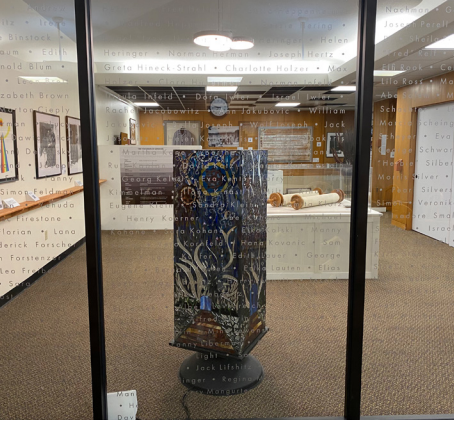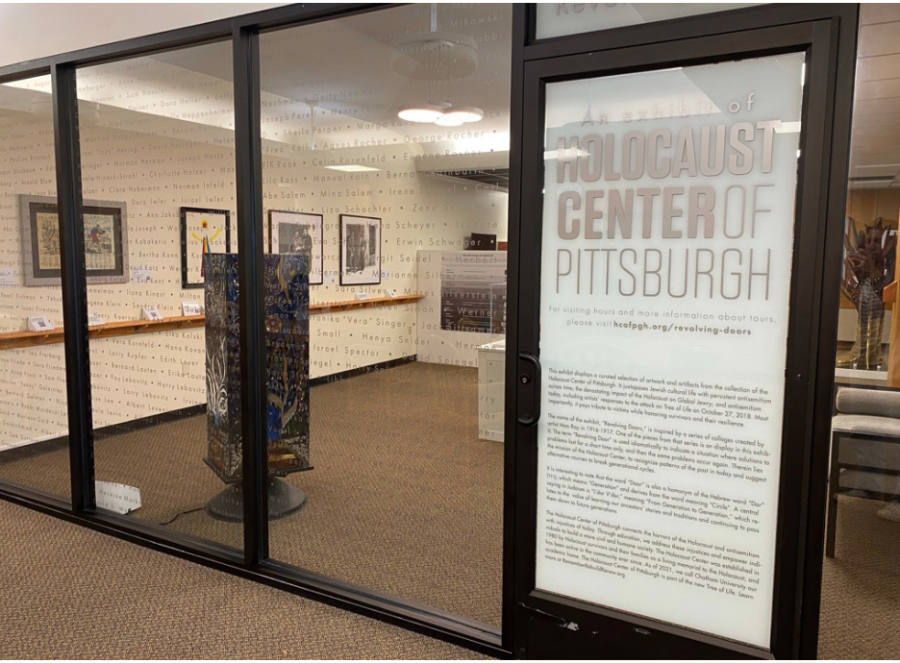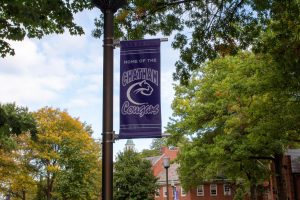Holocaust Center exhibit to open at Jennie King Mellon Library
November 3, 2022
Chatham University has partnered with the Holocaust Center of Pittsburgh to establish an exhibit of Jewish artwork and artifacts on the first floor of the Jennie King Mellon Library.
Following the shooting in 2018 at the nearby Tree of Life synagogue, Chatham and the Holocaust Center held a survivor program in the Campbell Memorial Chapel.
Dr. Lauren Bairnsfather, an adjunct professor of history at Chatham, described this moment as “a real spirit of comradery” that cemented the Center’s relationship with the University.
Besides her work at Chatham, Dr. Bairnsfather is the executive director of the Holocaust Center of Pittsburgh
Since then, Chatham and the Holocaust Center have maintained a formal relationship through new minors offered by the University, including Jewish studies and Holocaust, genocide and human rights studies.
The exhibit, titled “Revolving Doors,” opened at the end of October and run through spring 2024.
The exhibit will be open to Chatham students and community members from Shadyside, Squirrel Hill and beyond. Dr. Bairnsfather said that universities outside of Pittsburgh have already expressed interest in visiting it.
“Revolving Doors” is inspired by Jewish artist Man Ray’s collage series, a piece of which will be on display.
Dr. Bairnsfather believes the artifacts are arranged to show “a situation where solutions to problems last for a short time only, and then the same problems occur again.”
The structure of the artifacts within the space reflects the cycle of Jewish life, anti-Semitism and healing from devastating acts of violence against the Jewish people, particularly the Holocaust and the Tree of Life shooting, where 11 people were killed.

Credit: Carson Gates
The glass windows of the exhibit display the names of Holocaust survivors who lived in Pittsburgh. Some of the artifacts have been donated to the exhibit, and other pieces are from the Holocaust Center’s collection, which has been chosen to reflect the revolving door motif.
Dr. Bairnsfather said the exhibit will be “living and breathing,” meaning some artifacts may be removed or added to highlight a “complicated narrative in such a small space.”
She also hopes it will expose more people to Chatham and inspire conversations about social justice and identity-based violence.
“Some people say [Chatham] is a hidden gem. … When we bring school groups, then more students will see that this wonderful place is here and is an option for them,” she added. “For us, being around a university [is] a game changer because we have all of the energy here, the inquiry that’s happening here, the learning, the production of scholarship – it’s a very exciting place to be for any Holocaust Center.”
To learn more, visit hcofpgh.org/revolving-doors.







